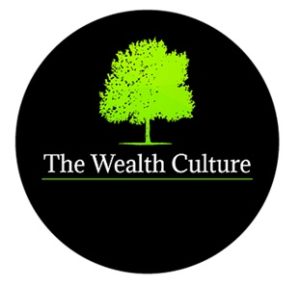A study was recently released by the Pew Research Center that stated for the first time since 1974, more African American children are living in poverty in the United States than any other demographic group. Keep in mind there are three times as many White children living in the United States than African American children. Let’s take a look at the numbers behind this. 38% of 11 million African American children live in poverty. This is very damning evidence pointing towards the need for greater fiscal health in African American communities. There seems to be an overwhelming opportunity to move from generational poverty to growing generational wealth in many African American homes.
I’d probably be closer to accurate than far off if I said that right now most of us are one emergency away from being in financial trouble. Most American families have less than $500 in savings. That isn’t enough to make it through an unexpected auto repair or medical emergency without causing hardship to the monthly budget. Some of us have family or even friends to fall back on if financial troubles arise. But for most there is no fall back plan. Decisions will have to be made to ensure a roof is maintained overhead and make sure food is on the table. High interest loans, or title pawns prey on situations like these. Usually one bad decision leads to another and before you know it you’ve lived a life time of selling off belongings to make ends meet and robbing Peter to pay Paul. Every day is a hustle just to make it to the next. But life doesn’t have to be that way. Living a reactive life style is a cycle that can be broken. To break the chain all is needed is knowledge. This knowledge needs to be embedded into our education, needs to be embedded in our churches and in our homes.
A little over a year ago we started researching financial health. We started figuring out what it will take to break the cycle of living paycheck to paycheck and move to being financially sound and prepared for rainy days. Along the way we have learned about the importance of several things like budgeting, paying off debt, saving, retirement planning and investing. We have also made changes to some of our spending habits, which haven’t come easy. I’ve gone from playing golf nearly every weekend to only having played 3 times this year. This sacrifice will be well worth it in the end. Once our debts are paid off and savings are at goal, I will be able to play as much golf as I want. Having already curved some of our spending there are still opportunities to cut our spending even more. My wife and I love convenience. One of those conveniences is eating out. We eat out a lot. And sometimes that eating out cost us a lot. Just ask the Jones’. Our next endeavor on our journey to being fiscally healthy will be to cut back on our eating out. To help with this we have come up with a challenge that we will share with you all a little later. Feel free to join us with the challenge as we continue our journey to become fiscally fit.
One of the things that we have discovered is that you are more likely to be successful at achieving financial health when your circle of friends or circle of influence have similar endeavors. We would like to invite you, our readers, into our circle. We want to share with you. We would like for you to share with us. Let’s bounce ideas off of each other. We hope you will be there to encourage us when we waiver and we will be there to support you as you face your fiscal vices. For those of you who are already financially healthy we need your help too. You already have the know-how and tools. You can share your knowledge and experiences with the group. For those who will be taking your first few steps towards becoming financially healthier, we need your enthusiasm and desire. Our elders have taught us that it takes a village. It’s time for us to form a financial health village so we can achieve our goals.
As we continue our journey to financial health, here are some questions we all will need to answer for ourselves. These are questions we all should know the answers to regarding our financial health.
What is your debt to income ratio?
What is your credit score?
Do you have a 401K, Roth IRA, or other form of retirement plan? If not, what is your retirement plan? If so, how much are you on track to pay yourself monthly once you retire?
Do you have at least $1000 in savings? if not how much?
How much money will it take to fulfill household expenses for 3 to 6 months?
How much money do you spend each month on entertainment and eating out?
How much money do you spend on your bills each month?
Do you have any investments (stocks, mutual funds, life savings accounts, etc…)?
Do you have more than one stream of income?
If you have children, will they (or you) have to borrow money to pay for their college education?
Do you consistently pay more than the minimum payments on your credit card(s)? If not, how long will it take to pay off the current balance on your credit card(s) and how much will you spend over that time frame?
Knowing the answers to these questions is important. Managing your spending, savings and investments appropriately plays a big role in your financial security. If you found this post helpful please click like and share this with your friends on social media.
Thanks for supporting The Wealth Culture!

